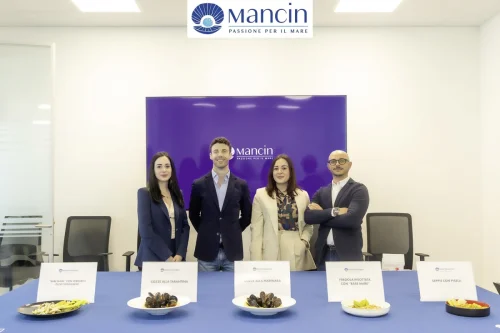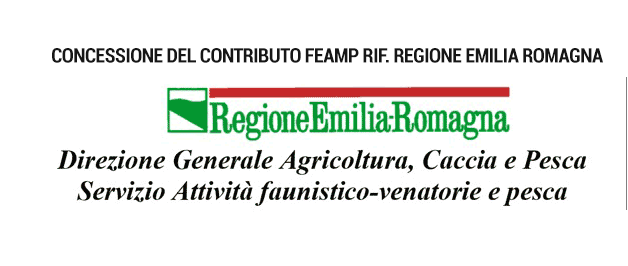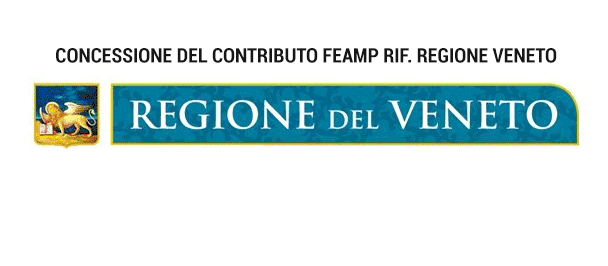
Mancin Nadia: when business vision wins over everything
Is it possible to turn a dramatic event with devastating business impact into an opportunity for growth and development? The answer is certainly not obvious, but in this specific case the answer is a definite yes, it is possible. We understood this last May 15 during the press conference that Mancin Nadia Srl organized for the trade press, moderated by Antonio Farnè, head editor of TG2 Economia Rai.
An opportunity to delve into the solutions adopted by the company, which counts 42 years of activity, its development perspectives, and a strategic vision from management. A chance also to visit the new plant—an exemplary example of process organization, cutting-edge technology, and real innovation.
Perhaps not everyone knows that in January 2023, Mancin Nadia faced one of the most complex challenges in its history: within a few hours, a fire completely destroyed the production site. Today, two years later and with an investment between 14 and 17 million euros, the company has restored its activities and launched a strong expansion phase, with a renewed infrastructure of over 6,000 m², state‑of‑the‑art technologies, and an even more efficient and sustainable production model.
One of the most significant results of this journey has been maintaining full employment: no one lost their job and salaries were guaranteed without interruption to the approximately 100 employees. A concrete commitment that confirms the centrality of people in the company strategy.
This focus on human resources, combined with the efficiency of the new plant, has laid the foundations for ambitious growth: the company aims to reach 20 million euros in turnover.
Marco De Agostini: from crisis to opportunity
“Today Mancin Nadia Srl is once again fully operational and backed by M.Gi.B., the group company specializing in mussel purification. Together, we have around 100 collaborators: a fundamental human asset, the heart of our restart,” emphasized Marco De Agostini, partner and CEO of the company. “This experience, as harsh as it was, taught us a lot. It showed us that our organization is solid, prepared, resilient. And it made us even more aware of the responsibility we have towards those who work with us, our customers, the territory. And towards future generations, to whom we want to hand over a modern, healthy, capable company able to grow.”
Paolo Pavani: focus on the business of Mancin Nadia and M.Gi.B. and on marinated products now without vinegar
The floor then passed to Paolo Pavani from commercial management, who briefly but very clearly presented the strengths and commercial scopes of the two Group entities. “Mancin Nadia is one of the main Italian companies specialized in producing ready‑to‑eat seafood gastronomy. We offer a series of recipes composed mainly of mollusk mixes (the so‑called seafood salads), products from the oily fish family (anchovies, sardines, and mackerel), and other specialties based on cuttlefish, octopus, or surimi, and more. All of this is offered in different packaging formats for all sales channels (retail and catering) and different preservation methods (oil, ATP, brine). All products follow the fresh chain at controlled temperatures 0°–4°,” Pavani told the journalists. “M.Gi.B. is located just a few kilometers away, in the bivalve mollusk harvesting district of Goro, one of the most important in Italy. Equipped with a modern purification plant, it distributes to the mass retail market under the MARINSIEME Frescovivo brand, mainly mussels and clams, but also lupins, vesicular clams, razor clams, and oysters.”
Given this premise and the distinction between the two companies, Pavani emphasized that the products that still represent Mancin Nadia’s core business today are the marinated items, created with recipes that represent the evolution of the traditional seafood preservation technique, marination, typical of the delta area between Chioggia and Comacchio. “To make them last over time, the product was marinated to lower the pH below a certain threshold and then the various species were placed in a brine of water, vinegar, and salt—first with eels and oily fish fillets and later with seafood salads. Over the years, improving cold‑chain efficiency and packaging techniques, the marination techniques have been refined, making them progressively less pronounced, in a continual process of taste research, to meet the needs of the modern consumer. With the continuous R&D work of Mancin Nadia’s food technologists, today the vinegar component is practically gone from the recipes, and consumers can comfortably enjoy appetizing products, like homemade or restaurant‑served ones, without conservation concerns.”
Gianluigi Veronesi: a new look at the future of the seafood market with two complementary product lines
The watchword from Gianluigi Veronesi, management consultant for marketing and communication? Innovate! “Mancin Nadia has decided to renew its offer with a new line of ready‑to‑eat seafood dishes, designed to meet the concrete needs of the Ho.Re.Ca. world and modern organized distribution. The first products in the commercial testing phase will be: Cozze alla tarantina, Cozze alla marinara, Polpo con patate, Seppie con piselli, and Base Mare. These are highly recognizable dishes appreciated by Italian consumers, able to guarantee user‑friendliness for the restaurateur and gastronomic quality for the end customer.”
Fabio Tacchella: the chef and his vision for the future of ready‑to‑eat seafood gastronomy
“We are living a historic moment in which the world of gastronomy faces a profound crisis linked to the lack of qualified staff,” said chef Fabio Tacchella, consultant for Mancin Nadia’s ready‑to‑eat line, at the beginning of his speech. Together with R&D head Sergio Mazzoni, Tacchella started technical and gastronomic work to create the new fifth‑range ready meals line for the Ho.Re.Ca. channel. “These are traditional seafood dishes designed to respond to the growing need for efficiency in professional kitchens, while keeping intact the values of well‑crafted cuisine: taste, recognizability, and respect for the raw material.
The Mancin dishes we are creating are not anonymous industrial products. They are restaurant‑style recipes, with attention to cooking, timing, texture, and nutritional composition. They are cooked sous vide, at controlled temperatures, cooled and packaged without preservatives, leveraging an efficient cold chain that guarantees a shelf‑life of about 40 days,” Chef Tacchella emphasized.
After spending a morning in close contact with Mancin Nadia's management and listening to their story and evolution, visiting the various sections of the plant—from raw material intake to defrosting, marinating, cooking and packaging—this experience ends with a clear idea. Here in Rivà, people, relationships, the team have won. A shared vision that is embedded in this reality with 42 years of life, which already includes the new generations of children and grandchildren of management, ready to carry on. Good work.
Mancin Nadia Srl, its first 42 years
-
1983 – Mancin Nadia Srl is founded by Martino De Agostini in the Po Delta area. The first productions of marinated anchovies and eels are mainly aimed at industry, repackagers, or wholesale channels.
-
2000 – With the first generational change, Marco, Michele, and Fabio start producing items and packaging also for Mass Retail, including Private Label, processing 1,600 tonnes of different fish species, structuring to organize rapid and efficient distribution in the national and international markets and bringing the company’s turnover to the threshold of 10 million euros.
-
2023 – In the following 20 years, the company, capable of keeping pace with the times by investing in new technologies and R&D, grows further, both in Italy and abroad, reaching a turnover of 20 million euros. In January 2023, a fire destroys the plant, forcing Mancin, which never stopped, to operate under provisional conditions, still managing to maintain its turnover of about 14 million euros in 2023 and 2024.
-
2025 – In two years the new 6,000 m² plant is built, with a vision and investments driven by the desire to grow again, retaining and optimizing historic production and implementing new types of products aimed at new sales channels, also supported by the now second generation in operation. The company has developed two distinct commercial lines: a professional one, dedicated to the Ho.Re.Ca. channel, with optimized formats, adequate shelf‑life, and flexibility for professional kitchens; and one for retail, focused on domestic consumption, in line with the expectations of those seeking a “restaurant‑style” experience at home. “The new ready meals will be produced in a renovated facility, equipped with the main hygiene certifications (BRC, IFS, ISO 22000), compliant with European market standards. Our products also stem from a study process involving nutrition experts, restaurateurs, and chefs, to ensure usability, taste, and stability. Regarding sustainability and ethical supply chain, we are committed to reducing plastic use, favoring recyclable packaging, and collaborating with responsible fishing fleets. Finally, we minimize preservative use without compromising safety and shelf‑life.” To conclude, Veronesi emphasized that this is not just a new positioning, “but a cultural and productive transformation path, in which we deeply believe. The goal is simple but ambitious: to make tradition accessible, sustainable, and compatible with the times and needs of our present.”
Mancin Nadia: when business vision wins over everything
Is it possible to turn a dramatic event with devastating business impact into an opportunity for growth and development? The answer is certainly not obvious, but in this specific case the answer is a definite yes, it is possible. We understood this last May 15 during the press conference that Mancin Nadia Srl organized for the trade press, moderated by Antonio Farnè, head editor of TG2 Economia Rai.
An opportunity to delve into the solutions adopted by the company, which counts 42 years of activity, its development perspectives, and a strategic vision from management. A chance also to visit the new plant—an exemplary example of process organization, cutting-edge technology, and real innovation.
Perhaps not everyone knows that in January 2023, Mancin Nadia faced one of the most complex challenges in its history: within a few hours, a fire completely destroyed the production site. Today, two years later and with an investment between 14 and 17 million euros, the company has restored its activities and launched a strong expansion phase, with a renewed infrastructure of over 6,000 m², state‑of‑the‑art technologies, and an even more efficient and sustainable production model.
One of the most significant results of this journey has been maintaining full employment: no one lost their job and salaries were guaranteed without interruption to the approximately 100 employees. A concrete commitment that confirms the centrality of people in the company strategy.
This focus on human resources, combined with the efficiency of the new plant, has laid the foundations for ambitious growth: the company aims to reach 20 million euros in turnover.
Marco De Agostini: from crisis to opportunity
“Today Mancin Nadia Srl is once again fully operational and backed by M.Gi.B., the group company specializing in mussel purification. Together, we have around 100 collaborators: a fundamental human asset, the heart of our restart,” emphasized Marco De Agostini, partner and CEO of the company. “This experience, as harsh as it was, taught us a lot. It showed us that our organization is solid, prepared, resilient. And it made us even more aware of the responsibility we have towards those who work with us, our customers, the territory. And towards future generations, to whom we want to hand over a modern, healthy, capable company able to grow.”
Paolo Pavani: focus on the business of Mancin Nadia and M.Gi.B. and on marinated products now without vinegar
The floor then passed to Paolo Pavani from commercial management, who briefly but very clearly presented the strengths and commercial scopes of the two Group entities. “Mancin Nadia is one of the main Italian companies specialized in producing ready‑to‑eat seafood gastronomy. We offer a series of recipes composed mainly of mollusk mixes (the so‑called seafood salads), products from the oily fish family (anchovies, sardines, and mackerel), and other specialties based on cuttlefish, octopus, or surimi, and more. All of this is offered in different packaging formats for all sales channels (retail and catering) and different preservation methods (oil, ATP, brine). All products follow the fresh chain at controlled temperatures 0°–4°,” Pavani told the journalists. “M.Gi.B. is located just a few kilometers away, in the bivalve mollusk harvesting district of Goro, one of the most important in Italy. Equipped with a modern purification plant, it distributes to the mass retail market under the MARINSIEME Frescovivo brand, mainly mussels and clams, but also lupins, vesicular clams, razor clams, and oysters.”
Given this premise and the distinction between the two companies, Pavani emphasized that the products that still represent Mancin Nadia’s core business today are the marinated items, created with recipes that represent the evolution of the traditional seafood preservation technique, marination, typical of the delta area between Chioggia and Comacchio. “To make them last over time, the product was marinated to lower the pH below a certain threshold and then the various species were placed in a brine of water, vinegar, and salt—first with eels and oily fish fillets and later with seafood salads. Over the years, improving cold‑chain efficiency and packaging techniques, the marination techniques have been refined, making them progressively less pronounced, in a continual process of taste research, to meet the needs of the modern consumer. With the continuous R&D work of Mancin Nadia’s food technologists, today the vinegar component is practically gone from the recipes, and consumers can comfortably enjoy appetizing products, like homemade or restaurant‑served ones, without conservation concerns.”
Gianluigi Veronesi: a new look at the future of the seafood market with two complementary product lines
The watchword from Gianluigi Veronesi, management consultant for marketing and communication? Innovate! “Mancin Nadia has decided to renew its offer with a new line of ready‑to‑eat seafood dishes, designed to meet the concrete needs of the Ho.Re.Ca. world and modern organized distribution. The first products in the commercial testing phase will be: Cozze alla tarantina, Cozze alla marinara, Polpo con patate, Seppie con piselli, and Base Mare. These are highly recognizable dishes appreciated by Italian consumers, able to guarantee user‑friendliness for the restaurateur and gastronomic quality for the end customer.”
Fabio Tacchella: the chef and his vision for the future of ready‑to‑eat seafood gastronomy
“We are living a historic moment in which the world of gastronomy faces a profound crisis linked to the lack of qualified staff,” said chef Fabio Tacchella, consultant for Mancin Nadia’s ready‑to‑eat line, at the beginning of his speech. Together with R&D head Sergio Mazzoni, Tacchella started technical and gastronomic work to create the new fifth‑range ready meals line for the Ho.Re.Ca. channel. “These are traditional seafood dishes designed to respond to the growing need for efficiency in professional kitchens, while keeping intact the values of well‑crafted cuisine: taste, recognizability, and respect for the raw material.
The Mancin dishes we are creating are not anonymous industrial products. They are restaurant‑style recipes, with attention to cooking, timing, texture, and nutritional composition. They are cooked sous vide, at controlled temperatures, cooled and packaged without preservatives, leveraging an efficient cold chain that guarantees a shelf‑life of about 40 days,” Chef Tacchella emphasized.
After spending a morning in close contact with Mancin Nadia's management and listening to their story and evolution, visiting the various sections of the plant—from raw material intake to defrosting, marinating, cooking and packaging—this experience ends with a clear idea. Here in Rivà, people, relationships, the team have won. A shared vision that is embedded in this reality with 42 years of life, which already includes the new generations of children and grandchildren of management, ready to carry on. Good work.
Mancin Nadia Srl, its first 42 years
-
1983 – Mancin Nadia Srl is founded by Martino De Agostini in the Po Delta area. The first productions of marinated anchovies and eels are mainly aimed at industry, repackagers, or wholesale channels.
-
2000 – With the first generational change, Marco, Michele, and Fabio start producing items and packaging also for Mass Retail, including Private Label, processing 1,600 tonnes of different fish species, structuring to organize rapid and efficient distribution in the national and international markets and bringing the company’s turnover to the threshold of 10 million euros.
-
2023 – In the following 20 years, the company, capable of keeping pace with the times by investing in new technologies and R&D, grows further, both in Italy and abroad, reaching a turnover of 20 million euros. In January 2023, a fire destroys the plant, forcing Mancin, which never stopped, to operate under provisional conditions, still managing to maintain its turnover of about 14 million euros in 2023 and 2024.
-
2025 – In two years the new 6,000 m² plant is built, with a vision and investments driven by the desire to grow again, retaining and optimizing historic production and implementing new types of products aimed at new sales channels, also supported by the now second generation in operation. The company has developed two distinct commercial lines: a professional one, dedicated to the Ho.Re.Ca. channel, with optimized formats, adequate shelf‑life, and flexibility for professional kitchens; and one for retail, focused on domestic consumption, in line with the expectations of those seeking a “restaurant‑style” experience at home. “The new ready meals will be produced in a renovated facility, equipped with the main hygiene certifications (BRC, IFS, ISO 22000), compliant with European market standards. Our products also stem from a study process involving nutrition experts, restaurateurs, and chefs, to ensure usability, taste, and stability. Regarding sustainability and ethical supply chain, we are committed to reducing plastic use, favoring recyclable packaging, and collaborating with responsible fishing fleets. Finally, we minimize preservative use without compromising safety and shelf‑life.” To conclude, Veronesi emphasized that this is not just a new positioning, “but a cultural and productive transformation path, in which we deeply believe. The goal is simple but ambitious: to make tradition accessible, sustainable, and compatible with the times and needs of our present.”
Do you want to get in touch with us?
Write to us by filling out the form below.


